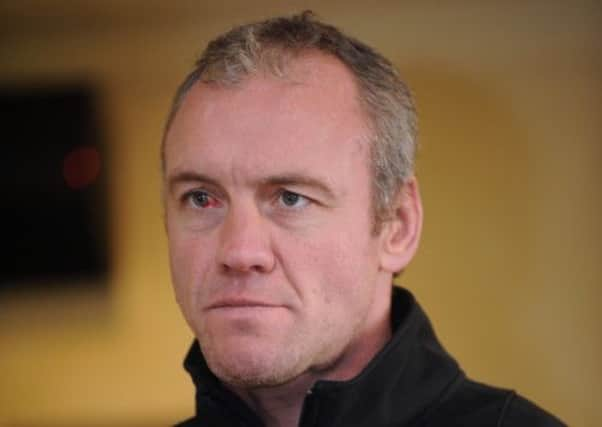Australians’ dominance dwindling with clubs broadening their outlook


THERE was a time when if you had even just the merest Australian twang you could be a frontrunner for a Super League head coach’s role.
Experience, qualifications, tactical awareness and such like did not seem to come into it.
Advertisement
Hide AdAdvertisement
Hide AdIf you called a stand-off a five-eighth there was a decent chance you would be in the running and there was an apparent belief among club owners here that Sydney-based might as well have meant success banked.
As little as just five years ago, there were nine overseas coaches in the domestic game’s elite, a worrying trend that showed little sign of abating.
Back then, in 2009, there were just five Englishmen – Wakefield’s John Kear, Bradford’s Steve McNamara, Harlequins’ Brian McDermott, Wigan’s Brian Noble and Hull FC’s Richard Agar – in charge of 14 Super League sides.
They were swimming against an increasingly forceful tide of foreign bosses and seemed all set to be cut adrift.
Advertisement
Hide AdAdvertisement
Hide AdHowever, when Yorkshireman Noble takes his first press conference as Salford City Reds chief today and, if you include Castleford Tigers’ temporary coach Danny Orr, that proportion will be up to eight from 14.
Considering Frenchman Laurent Frayssinous also replaced an NRL product Trent Robinson at Catalan Dragons at the start of this campaign, it means Australians Tony Smith (Warrington), Peter Gentle (Hull FC), Craig Sandercock (Hull KR), Nathan Brown (St Helens) and Tony Rea (London Broncos) are now in a surprise minority.
Their fellow countryman Ian Millward was sacked by Castleford after just one win in 18 games and all the talk coming out of Wheldon Road is they will not make the same mistake again.
There will be no expensive, high-profile Australian signed on exploits of nearly a decade ago; they are seeking someone at the “cutting edge” of Super League, willing to put in plans and detailed systems for the entirety of the club, not just its first team, while they also have a preference for a British candidate.
Advertisement
Hide AdAdvertisement
Hide AdClearly, that last point is only a ‘preference’; the right man must get the appointment, regardless of accent, otherwise Castleford will have the same arguments levelled against them as many have pointed at Australians so far.
However, it is refreshing to see that clubs are no longer seeing it as imperative that they go for the antipodean option. Not only that, there is every reason to suggest the British appointment can bring dividends. Obviously, McDermott is the case in point having replaced Kiwi Brian McClennan as Leeds Rhinos coach ahead of the 2011 season.
He has guided them to two successive Grand Finals wins, a World Club Challenge success and a couple of Challenge Cup finals in the process.
Granted, many will argue the Wakefield-born 43-year-old inherited a fine team which was already accustomed to lifting silverware, but nonetheless he has earned rave reviews from both inside and outside of Headingley.
Advertisement
Hide AdAdvertisement
Hide AdHowever, it is the erstwhile assistants promoted to succeed Australian premiers in recent years that offer the most marked evidence of a growing faith in British coaches.
And not only that, they are all doing well, too.
After four years working alongside ex-St George-Illawarra boss Brown, Huddersfield Giants’ Paul Anderson has impressively stepped up to the main job and they sit second behind only Wigan, led by another gruff ex-Great Britain prop Shaun Wane.
He had judicially followed Michael Maguire’s example when the Melbourne Storm assistant arrived in 2010 and transformed Wigan’s fortunes.
When Maguire inevitably returned home to take up a top job with South Sydney many thought Wigan would look for a similar candidate again.
Advertisement
Hide AdAdvertisement
Hide AdHowever, chairman Ian Lenaghan put faith in the assistant and it is proving wise
Bradford’s Francis Cummins, 36, served under Smith and McClennan at Leeds before doing two years with Australian Mick Potter at Odsal, but he, too, has made an effortless transition.
Wakefield have their own Yorkshireman in Richard Agar and, ironically, it is the Australians currently feeling the heat more than anyone else.
Obviously, Millward paid the price, but Brown – initially so revolutionary for Huddersfield where he was 2009 Super League Coach of the Year – is finding it tough after taking on the so-called ‘bigger’ club St Helens.
Advertisement
Hide AdAdvertisement
Hide AdThey have lost three of their last four games and face a tricky Challenge Cup fourth-round tie at Hull KR on Saturday, where they fell only a fortnight previously.
Many must think they would have been better served with last year’s duo of club stalwarts Mike Rush and Keiron Cunningham.
Closer to home, Hull FC’s Gentle and Sandercock, his counterpart across the river at Hull KR, have each endured difficult campaigns and it remains to be seen whether the latter will be retained for 2014.
Eyebrows were raised when the relatively inexperienced former economics teacher, who was on Newcastle Knights’ backroom staff after a previous spell working with Manly’s lower grades, was appointed 18 months ago.
Advertisement
Hide AdAdvertisement
Hide AdAmbitious new Salford owner Dr Martin Koukash could have been tempted to venture towards the NRL having sacked another Australian Phil Veivers earlier this season, but he plumped for ex-Great Britain coach Noble, 52, the most successful coach of the summer era having guided Bradford Bulls to five consecutive Grand Finals.
Castleford may go for a lower profile and perhaps an experienced top-flight assistant who has served his apprenticeship, like Huddersfield’s Kieron Purtill, the England Knights boss who would fit perfectly for the challenges that lie ahead at Wheldon Road.
But Kear, Veivers and Daryl Powell will all be contenders.